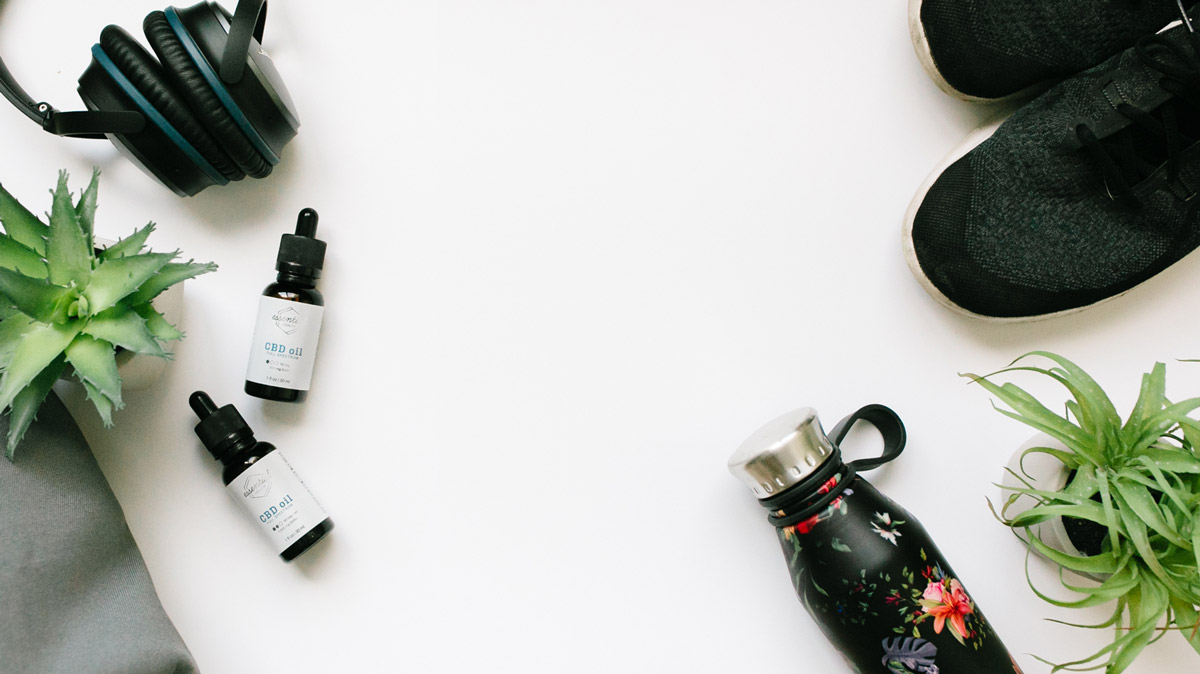The CBD or cannabidiol hype comes with a handful of claims. Those serious in their fitness journey may say CBD helped solve their nagging issues with cravings, soreness, and recovery, among others. Whether you want to use CBD in bath bombs to soothe your body, like actress Emma Roberts, or expedite healing post-fights and training, like MMA professional Anthony Pettis, you first need to explore more ways CBD oil can benefit your fitness.
What Is CBD Oil?
Cannabidiol can be hemp-derived or marijuana-derived—the latter still has a few knots with the law. Either way, the cannabis sativa plant is known to have over 100 chemical compounds. Some components can get you high, like THC, while its component CBD won’t get you high or arrested.
After extracting cannabidiol from the plant, the next step is dilution with a carrier oil. Hemp seed or coconut oil are common carrier oils for CBD oil.
Legalities Of CBD Oil
In January, the World Anti-Doping Agency (WADA) removed the ban for competitive athletes to use CBD for recovery. In the ten states where medical and recreational cannabis use is legal, you won’t have hindrances to using CBD.
At a federal level, hemp-derived CBD is legal, thanks to the new Farm Bill signed by former president, Donald Trump. This legalized growing, distributing, and selling industrialized hemp. Meanwhile, some state laws and regulations still constrict marijuana-derived CBD. Still, be wary of products claiming to contain only CBD, but have traces of THC.
Now, On To The Benefits
Coaches and fitness trainers have started approving CBD oil use in training and recovery. Here’s why:
- May alleviate chronic pain – One study with participants for pain management clinics revealed CBD helped ease pain in a non-addictive way. Furthermore, six of the ten participants said CBD use paved the way for them to reduce the use of other pain medications, including opioids.
Preliminary evidence suggests CBD oil may help relieve pain associated with rheumatoid arthritis, osteoarthritis, back pain, endometriosis, chronic migraine, and old injuries.
- May be an alternative to pharmaceutical NSAIDs – While cheap and convenient, non-steroidal anti-inflammatory drugs (NSAIDs), like Advil or ibuprofen, aren’t the only options to reduce inflammation, and relieve pains and sprains.
CBD oil may also help alleviate inflammation and other pain issues, with no potential for addiction. Side effects are mild, such as an upset stomach, dry mouth, or sleepiness. Still, there are also reports of fatigue, diarrhea, and appetite changes.
Moreover, CBD oil can affect the body’s metabolization of some medications. Avoid taking ibuprofen in combination with CBD oil use as the latter can raise ibuprofen levels in the blood. CBD also interacts with diabetes medications, seizure and pain medications, and antidepressants.
- May curb hunger – A few drops of CBD oil in your drink may help decrease the amount you’re eating. CBD may help reduce appetite and food cravings without causing you to starve.
- May improve sleep – Is your lack of sleep preventing you from going all-out at the gym? Consider incorporating CBD into your bedtime routine. CBD oil is said to be beneficial in ensuring the body gets adequate rest, specifically by encouraging deep sleep. Getting enough sleep helps regulate mood, restore the immune and muscular systems, and repair the body for the following day’s workout.
Furthermore, CBD oil may help safely treat insomnia in children. CBD oil may also help with other issues causing trouble with sleep, like nightmares in adults, anxiety disorder, and post-traumatic stress disorder.
- May be an effective pre-workout booster – It may not fill your stomach, but adding CBD oil into your pre-workout drink is said to enhance performance in doing cardio, weight training, and other workouts.
- May promote mobility – According to a scientific study, CBD oil may help promote mobility in people dealing with the symptoms of multiple sclerosis. The research suggests CBD as neuroprotective, antioxidative, antiemetic, and anti-inflammatory. These traits may help with functional mobility issues.
- May reduce anxiety and game-day stress – CBD oil may help manage blood pressure, anxiety, and arousal. Furthermore, using CBD oil may help calm nervousness, muscle tension, sweating, nausea, and improve coordination.
- May relieve muscle soreness – Muscle soreness or stiffness due to microscopic damage to muscle fibers is common after workouts. Adding CBD oil to your post-workout smoothie may help combat muscle damage from exercise, including delayed onset muscle soreness (DOMS). Expediting healing and muscle recovery may prevent injuries.
How To Add CBD Oil To Your Fitness Plan
CBD oil is easy to take in. It usually comes with a dropper, making it easy to take a few drops under your tongue. You may add CBD oil to beverages, food, and dietary supplements. Dosage remains unregulated, and this is one to consider carefully before using CBD oil regularly. Thus, it’s best to consult with a licensed health professional and start on a low dose.
Also, be wary of products that may contain more than just CBD. Keep in mind that herbal ingredients may potentially interact with some medications.
It’s wise to do some thorough research on the CBD oil products you’re planning to use. One study unveiled that only roughly three of ten CBD products sold online are truthful about the levels of CBD they contain, despite claiming to be pure CBD.








